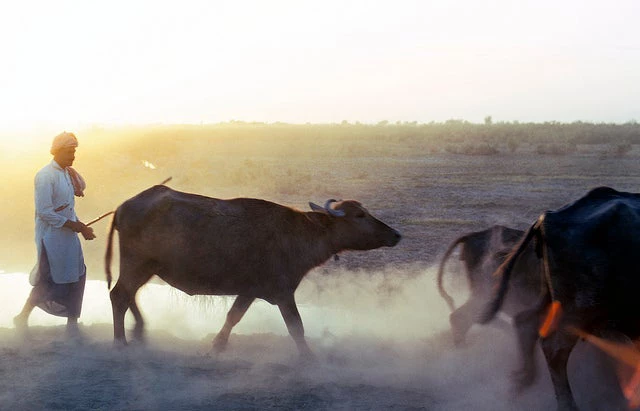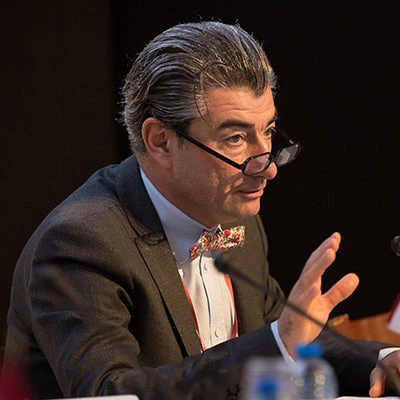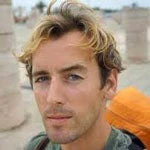
Disease Outbreaks: A Constant Threat
The World Health Organization called for “heightened vigilance and strengthened surveillance efforts” last week to prevent and detect human transmission of a highly pathogenic strain of avian influenza or ‘bird flu’. And while no human cases have been reported and WHO itself called the risk “relatively low,” we know the potential devastating impacts of diseases spread from animals to humans.
Emerging infectious diseases (EIDs)—or infectious diseases whose incidence has increased in the past 20 years-- add to the ongoing burden of endemic infectious diseases around the world, which is disproportionately felt in developing countries. Disease outbreaks threaten people’s health and the well-being of society--impacting animal and food systems, tourism and travel, and trade. Well-intentioned but inappropriate control measures, such as chemical spraying or culling can also negatively impact ecosystems, the plants, animals, and humans that live within them. In spite of advances in prevention and response, infectious diseases continue to impede sustainable development.
One Health: A Collaborative Response
A common characteristic of infectious health challenges is spillover from one species to another. On average, a new disease in humans has emerged or re-emerged each year since the Second World War, 60% of which have come from animals. HIV have taken hundreds of millions of lives. More than 1 billion cases of zoonotic disease are recorded every year, though endemic disease cases are thought to be vastly underreported.
Reducing the conditions and practices that facilitate spillover at the source can help protect humans, while also preserving animals and ecosystems. Approaches to doing so are commonly referred to as “One Health”; the simple idea that human health and animal health are interdependent and bound to the health of the ecosystems in which they exist. The One Health approach can enhance understanding amongst sectors, identify risk mitigation options, and provide a more complete picture of how human health is linked to other species and the environment.
A One Health approach is also good for the economy. Economic losses associated with zoonotic disease are enormous. The total direct costs of H5N1 ‘bird flu’ outbreaks have exceeded US$20 billion since 2003. SARS in East Asia and Canada led to losses estimated at US$41.5 billion. And current estimates suggest that antimicrobial resistance (AMR) may reduce world GDP by upwards of 3.5% annually by 2050. Best estimates indicate that US$ 3 billion per year is required to build and operate One Health systems for effective disease control in developing countries. This would yield as much as $37bn in savings from reduced epidemics and pandemics – a net win of $34bn annually.
New World Bank Action on One Health
The World Bank has been working toward a One Health agenda for more than a decade. The 2005 Global Program for Avian Influenza (GPAI) was perhaps the first and most prominent illustration of this approach, integrating animal, human, and environmental health considerations at global scale. The GPAI engaged 62 countries through 83 operations, and significantly diminished the overall impact of the outbreak by financing individual country systems.
There was a critical need for the WBG to develop an overarching operational framework that would support countries with their unique characteristic and differentiated needs, while addressing both diseases and systems at global and national levels, capturing the lessons learned from recent field experiences and the recent REDISSE West Africa regional series of operations on animal and human health disease surveillance, and knowledge development, harmonizing as much as possible the proposed approaches and enabling better synergies among the various country responses and donors support. Recently, a Bank team working across health, agriculture, environment, and climate has initiated an over-arching Operational Framework for One Health, identifying country-level and global approaches to achieving One Health outcomes, while supporting discreet WB initiatives such as pandemic preparedness and others. This framework will be instrumental in implementing the IDA18 objective (e.g. pandemics and preparedness).
As part of this process, and in partnership with the US Agency for International Development and EcoHealth Alliance, an expert group of economists, modelers, and global animal and human health specialists are helping articulate the various economic dimensions of One Health. Critical to integrating any One Health approach or programming into country planning is an accurate grasp of the economic dimensions of impacts and opportunities. Doing so enhances and organizes known datasets and enables more effective conversations with decision-makers who have varied expertise in health, environment, and finance and who set national and international policy. Bigger investments in prevention and preparedness can also reduce high potential costs of persistent and emerging diseases, while increasing healthcare savings and profits associated with animal production. Ultimately One Health economics tools and assessments can provide countries with more options for choosing cost-effective strategies to prepare for, prevent, and respond to disease.
The connections and conversations are already bearing fruit with new collaborations forming, methods identified, and case-studies highlighted- each of which may serve any number of future global One Health needs, and firmly embed this work in actionable policy measures for years to come.*
*Outcomes of this meeting will be publicly available in the coming months and will be used to inform the development of a new operational framework for One Health.




Join the Conversation